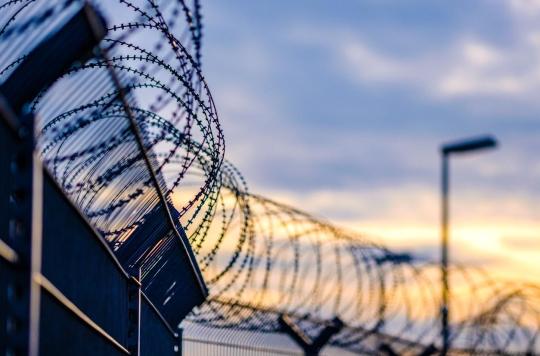INTERVIEW – The Controller General of Places of Deprivation of Liberty reviews the report and emergency recommendations issued after a mission to Fresnes prison.

“Rats roam en masse at the foot of buildings, in walking yards and around buildings throughout the day. They are not afraid of the presence of human beings; one cannot avoid stepping on their excrement; they are present even in the main courtyard of the establishment. The lingering odor of their fur, their excrement and their corpses, is added to that of the heaps of garbage which litter the foot of the buildings ”.
There is nothing cheering about the picture already; and yet, it depicts only a small part of the violations of fundamental rights observed by the twelve inspectors sent to the men’s remand center of the Fresnes penitentiary center (Val-de-Marne). A mission that gave rise to an apocalyptic report on the conditions of imprisonment in this prison, accompanied by emergency recommendations. Adeline Hazan, Controller General of Places of Deprivation of Liberty (CGLPL) discusses this mission and the challenges of the recommendations.
Were you really surprised by what you saw in Fresnes?
Adeline Hazan: Yes, because a team had carried out a control in 2012, and what it had then spotted does not have a common measure with what we observed in 2016. It evoked fairly classic disorders, a generally degraded prison, overcrowded cells. But in four years, the situation has deteriorated enormously, materially but also in the climate of tension and violence. Fresnes has always been considered a harsh establishment, due to its size and the rather heavy profile of some inmates. But it had never gone beyond that.
Prison overcrowding, the shortage of staff, the proliferation of conflicts… All this means that there is a climate of permanent tension. Insulting remarks have become very frequent on the part of the supervisors. The use of force, which can sometimes be necessary, is completely trivialized. This was confirmed by the inmates, of course, but also by psychologists and psychiatrists in the prison. The French prison situation is in itself very alarming (140% overcrowding on average) but Fresnes really represents the worst of France.
You raise an epidemic risk in the prison …
Adeline Hazan : There is a profusion of rats and bugs which make the hygienic conditions deplorable and dangerous. Also, there is mold on the wall and in the hallways; the visiting room is in an unworthy state, although it receives families, including children. The risk is real, for the inmates as well as for the guards. Rats transmit leptospirosis, a bacteria that can be fatal. In the year, there were two or three cases of people infected with leptospirosis. They were treated, fortunately there were no deaths.
In addition, access to healthcare is a real problem. The more overcrowded the establishment, the less access to care for inmates, since the number of nursing staff is calculated on the basis of theoretical and not actual numbers. When there are twice as many detainees as there are places, inevitably, there is half the possibility of access to care. Waiting times are enormous, especially among specialists (up to a year of waiting). Consultations are carried out in a hurry. However, the 2009 law stipulates that detainees must be treated under the same conditions as those in freedom. Suffice to say that we are far from it.
What do the emergency recommendations bring in terms of public action?
Adeline Hazan : Usually, when a report is made and a violation of fundamental rights is observed, it is sent to the Minister; it all takes a year. Emergency recommendations are very rare, they refer to extremely serious attacks. So we don’t do an overall report on the establishment (we will do it later) but we point out the most urgent points and the ministry has three weeks to provide a response.
The answers given to us are largely insufficient, vague and agreed upon. They do not answer the problem. However, we first ask for simple things: that the individual cells of 10m2 no longer house three people, for example. We are not asking to go from 4,000 to 2,000 inmates! But on this, the department does not respond.
We make 150 visits per year, therefore 150 annual reports, but emergency recommendations remain exceptional and we do not trivialize them: since I took office, this is the third. Even if we do not have the power of injunction, the fact of using this procedure alerts both the Keeper of the Seals and the public. It is much more likely to be successful than a simple report.
.















